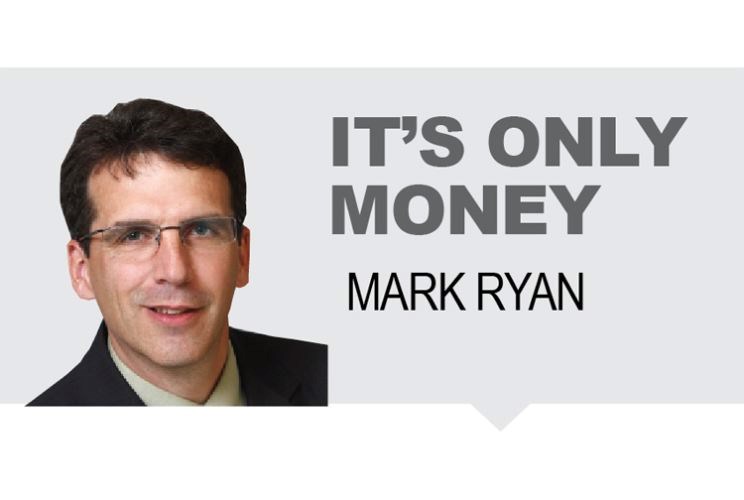I always find any Canada-wide economic analysis weirdly only semi-useful. We are such a vast geographic space, not particularly homogeneous culturally, economically, or even politically, except when our hockey players are on the international stage, then we breathe as a single organism. So when RBC Economics puts out a report such as the one I am drawing from today, I see a calico cat country and read it by the patch.
It's true that a good chunk of our real estate value is driven by offshore investors, who in fact might not distinguish Halifax from Spuzzum, but even they, should they invest, will need to drill down to the neighbourhood level before laying down money.
Home resales increased in Canada for the second-straight month in April: the 3.6 per cent month-over-month advance isn't an 'all-clear' signal for the market but strongly suggests that the cyclical bottom has been reached. Activity climbed above year-ago levels for the first time since December 2017.
Prices stabilizing: the Canada-wide benchmark price was essentially flat year-over-year, down marginally by 0.3 per cent. This was a smaller decline than in March (-0.5 per cent).
Local market picture remains highly fragmented but April brought more encouraging news: activity picked up in Alberta and Saskatchewan and there were strong indications that the Toronto-area market finally turned a corner.
However, the Vancouver-area market isn't out of the woods yet: resales fell for a sixth consecutive month and prices are still sliding (the benchmark is down 8.7 per cent since the June 2018 peak). A recovery seems far off at this stage. Time will tell if this spills over in to our market in central B.C.
I can see clearly now.
Clearly is clearly an Orwellian word, but if there's one thing the April report from the Canadian Real Estate Association (CREA) made "clear," it is that Canada's housing market isn't caught in a downward spiral, mostly.
Showing a second-straight monthly increase in resales and a lessening in the pace of price decline, the report provided evidence that this cycle's bottom has been reached overall in Canada (head and tail yes, but left flank...?) The level of activity - at 459,700 units annualized - was still weak last month as local markets across the country continue to adjust to the mortgage stress test and other policy measures adopted in the past couple of years, as well as higher interest rates.
Some markets like Ottawa, Montreal and Halifax are coping quite well but others like Vancouver and Victoria continue to struggle.
The April report brought good news for the Toronto area and markets in Alberta and Saskatchewan where activity picked up noticeably.
A wave of new Toronto listings (up 8.1 per cent month over month) pulled many buyers from the side-lines. Resales surged by 11.2 per cent from March and prices accelerated slightly to a rate of 3.2 per cent on a year-over-year basis. An earlier report from the Toronto Real Estate Board showed surprising strength in the single-detached home segment in April.
Resales rose in Calgary (up 5.2 per cent month over month), Edmonton (up 7.8 per cent), Regina (up 11.6 per cent) and Saskatoon (up 11.5 per cent).
For the most part, these increases took place from low bases. Still-soft demand and plentiful supply are keeping prices on a downward track in each of these markets.
April didn't bring an end to Vancouver's market slump. Resales (down 1.4 per cent month over month) and prices (down 8.5 per cent year over year) fell further. And there's probably more declines in property values on the way as demand-supply conditions are particularly weak.
The sales-to-new listings ratio dropped to a decade low of 0.31 in April. Conditions aren't quite as soft in Victoria but resale activity continued to trend downward last month, which further reduced upward price pressure. The rate of increase in Victoria's MLS HPI moderated to 0.7 per cent, down from 13.5 per cent a year ago.
Montreal, Ottawa and Halifax have been among the hotter markets in Canada in the past year. All three continue to be vibrant at this stage - with sellers in control of pricing - though Montreal experienced a small dip (-1.0 per cent m/m) in activity in April despite more supply coming to market. Resales continued to rise in both Ottawa (up 2.0 per cent month over month) and Halifax (up 1.7 per cent).
If Canadian real estate has reached its cyclical bottom, this doesn't imply that it's about to initiate a rally.
We expect market activity to stay soft in the coming months as buyers continue to deal with affordability issues in key markets, and the stress test and other policy actions taken over the past couple years.
In the coming months, we'll watch closely the extent to which recent declines in mortgage rates bring relief to buyers and whether first-time home buyers decide to put their plans on hold until more details on the federal government's First-Time Home Buyer Incentive become available.
On a broader economic note, some analysists express concern about overall household debt levels in Canada - the subject of a future article here.
If not for the offshore component of our real estate business, we might be in more of a pickle than we appear to be now.
Even a calico cat has a limited number of lives.
-- Mark Ryan is an investment sdvisor with RBC Dominion Securities Inc. (Member-Canadian Investor Protection Fund), and these are his views, and not those of RBC Dominion Securities. This article is for information purposes only. Please consult with a professional advisor before taking any action based on information in this article. Please consult with a professional advisor.



